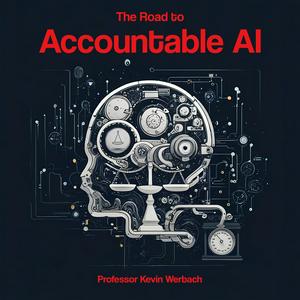Alexandru Voica, Head of Corporate Affairs and Policy at Synthesia, discusses how the world's largest enterprise AI video platform has approached trust and safety from day one. He explains Synthesia's "three C's" framework—consent, control, and collaboration: never creating digital replicas without explicit permission, moderating every video before rendering, and engaging with policymakers to shape practical regulation. Voica acknowledges these safeguards have cost some business, but argues that for enterprise sales, trust is competitively essential. The company's content moderation has evolved from simple keyword detection to sophisticated LLM-based analysis, recently withstanding a rigorous public red team test organized by NIST and Humane Intelligence.
Voica criticizes the EU AI Act's approach of regulating how AI systems are built rather than focusing on harmful outcomes, noting that smaller models can now match frontier capabilities while evading compute-threshold regulations. He points to the UK's outcome-focused approach—like criminalizing non-consensual deepfake pornography—as more effective. On adoption, Voica argues that AI companies should submit to rigorous third-party audits using ISO standards rather than publishing philosophical position papers—the thesis of his essay "Audits, Not Essays." The conversation closes personally: growing up in 1990s Romania with rare access to English tutoring, Voica sees AI-powered personalized education as a transformative opportunity to democratize learning.
Alexandru Voica is the Head of Corporate Affairs and Policy at Synthesia, the UK's largest generative AI company and the world's leading AI video platform. He has worked in the technology industry for over 15 years, holding public affairs and engineering roles at Meta, NetEase, Ocado, and Arm. Voica holds an MSc in Computer Science from the Sant'Anna School of Advanced Studies and serves as an advisor to MBZUAI, the world's first AI university.
Transcript
Audits, Not Essays: How to Win Trust for Enterprise AI (Transformer)
Synthesia's Content Moderation Systems Withstand Rigorous NIST, Humane Intelligence Red Team Test (Synthesia)
Computerspeak Newsletter


